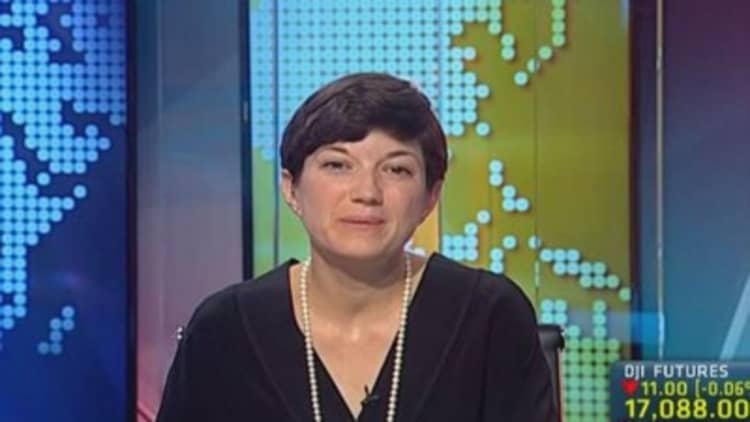Susan Bradley, founder of the Sudden Money Institute, said she has uncovered a fundamental truth: Almost everyone is in some form of a life transition.
And how well you manage that transition often determines how well you make financial decisions.
"Look at baby boomers," she said. "By definition, they are starting the [densest] time of transition in their lives, whether they're going through retirement, divorce [or] selling their businesses." Bradley has been providing research, training and services in financial-transition planning for 15 years.
Stress caused by major transitions can impede one's ability to think clearly and make decisions.
"For people going through emotional upheaval, everything seems black and white," said Robert Bolen, certified financial planner and president of Envision Wealth Planning. "They want to do it all now or do nothing at all.
Read MoreGay pilot? Muslim quarterback? Meet your advisor
"At first blush, it seems like it has nothing to do with their assets, but one can quickly see that keeping clients from making bad decisions can help their portfolios," he added.
Major life transitions can take years, said Bradley. Without guidance, "clients can lose valuable time figuring out the path to the next phase of their lives and what they really want to do with their money," she added.
Certified in transitions
Recognizing that financial advisors need transition-management skills to better serve their clients, Bradley developed a training program leading to the designation known as certified financial transitionist (CFT).
"Being cognizant of the psychological impacts of transition has made me a better planner," said Bolen, also a CFT. "In the discovery meeting, I'm more attentive to the characteristics of transition.
Characteristics of "transition stress"
State of mind
- Confused
- Overwhelmed
- Loss of possibilities
- Invincibility
- Physical and mental fatigue
Decision-making
- Fear-based decisions
- Frozen
- Avoidance
Attention span
- Narrow focus
- Short attention span
Behavior
- Hyper-reactive
- Victim mentality
- Combative/angry
- Inconsistent
- Withdraw
- Isolation
Source: Susan Bradley, Sudden Money Institute
"The CFT training has shown me how to use certain tools and how to interact with the client in a more effective way," he added.
Bolen cited the case of a newly widowed individual, with whom he used a CFT technique known as the decision-free zone, which is a process of sorting, organizing and prioritizing everything on a client's mind.
Read MoreAdvisors get hooked on niche clients
"We sorted his issues into the categories of 'now,' 'sooner,' and 'later,'" Bolen said. "And I encouraged him to take a proactive 'time out' from dealing with his transition.
The client loved the idea, Bolen added. "Without the transitionist training, I would have focused on the technical side of things; for example, risk tolerance," he said. "I wouldn't have thought to try to slow him down."

Judy Haselton, certified financial planner, CFT and owner of Harmony Financial Advisors, was drawn to the idea of transition management after going through her own significant life transition: divorce.
"Nobody had the big picture when I was going through it; I had no advocate to help me bring the [emotional and financial] pieces together," she said.
Read MoreNiche advisors finding fulfillment
"Other specialists have the technical expertise, but not the expertise in helping clients bridge the subjective emotional aspect of the transition with the objective practical decisions that need to be made around money," Haselton said. "My goal is to help them clearly understand what they want to use their money for."
To move clients through the transition process, Haselton uses a variety of CFT tools. These include a communication survey that determines how clients prefer to take in information and workbooks that examine the topics of family stewardship and values. Haselton herself now manages each of her clients' investments.
"It also allows me to stay connected with my clients," she said.
Read MoreAdvisors zero in on Gen X, millennials
Transitionist activities should supplement, not replace, traditional financial planning activities, advisors say.
"The [certified financial planner's] planning process assumes life is predictable, often augmented by Monte Carlo simulations," said Kathleen Roth, partner with Waterstone Financial Services and a CFT.
We teach our clients to step out of the high-stress emotional state to give them skills to help them think with more clarity.Kathleen Rothpartner at Waterstone Financial Services
Her practice focuses on women in transition, specifically those newly widowed or divorced. "But a CFT knows that life is not predictable," she said.
"When we had the credit crisis in '08, everyone was going through transitions," said Roth, a certified financial planner. "But the tools we used with our clients made them more confident and feel more in control.
"We teach our clients to step out of the high-stress emotional state to give them skills to help them think with more clarity."
A thinking partner
The CFT acts as a thinking partner, not an answer man, according to Roth. "But we recognize that there's a line between helping clients think through a situation and delving into their motivation," she said. "We don't act as psychologists."
And when it comes to transition work, what's in it for the advisor?
Read MoreAdvisors feel pressure to specialize
"First of all, there's an altruistic aspect; when clients have better focus and clarity, we can do a better job in terms of risk and reward," said Roth. "We can help them live a satisfying life within their financial realities.
"Secondly, it makes for good relationships with clients, which means a solid practice with dependable revenue," she added.





